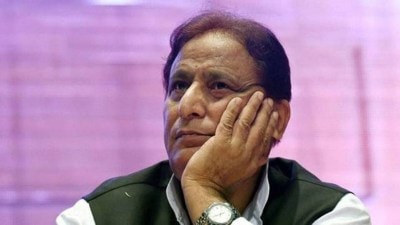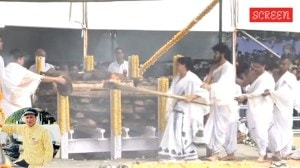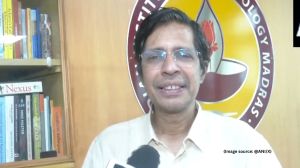Bureaucrats’ panel `dilutes’ report of Task Force
MUMBAI, AUG 22: It needed only two sittings for a committee of bureaucrats to change a report on imparting education to 26 lakh underprivi...

MUMBAI, AUG 22: It needed only two sittings for a committee of bureaucrats to change a report on imparting education to 26 lakh underpriviledged children, prepared by a Task Force on Child Education, after studying and discussing the issue for two years.
Members of the state-level Task Force, appointed by the State Government to prepare a time-bound programme for informal education to the school-dropouts and child-labourers, are furious over the `dilution’ of their report by a sub-committee, headed by Project Director for Education.
“In fact, the sub-committee of the Government officers had been appointed to draft a plan for implementation of the report, submitted by us. But it crossed its limit and almost changed the report,” said Vivek Pandit of Vidhayak Sansad, who is one of the members of the Task Force, headed by the Minister for School Education.
Unlike the report of a Task Force Committee (TFC), the sub-committee has neither fixed the responsibility for the education of underpriviledged children on any senior government officer nor has suggested any steps for funding the scheme by the Government. The cash-strapped State Government has been suggested to seek funds from the Central Government, World Bank-aided District Primary Education Programme and UNICEF.
The plan would serve no purpose since the sub-committee has entrusted the responsibility of its implementation on the village-level Gram Shikshan Samitis, most of which are defunct, said Pandit. In its report, the TFC had suggested that a high-level committee, headed by the School Education Minister, should supervise the implementation.
The plan, which expresses the Government’s commitment to impart education to the children between nine and 14 years, is non-commital on education of children in the age-group of six to nine years. It has also suggested a drastic cut in the total teaching period to 1,200 hours from 2,400 hours, as suggested by the Task Force Committee.
The bureaucrats’ apathy towards the underprivileged students is evident from the dropping of the condition for holding the teachers responsible for the performance of the students and payment of mere Rs 500 to the teachers for minimum 10 students, alleged Pandit.
Even the recommendations regarding choosing the syllabus on par with the formal education course, have been ignored, he added.
Above all, unlike the TFC recommendations, the sub-committee has suggested that 100 informal education centres be opened in 33 districts of the State. “This means the Government is assuring education to 60,000 to 70,000 out of 26 lakh children. What about the rest?” he sought to know.
The non-official members on the TSF — Pandit and Vijaya Chauhan, programme co-ordinator of UNICEF, Mumbai — have decided to reject the report in a meeting, called by the School Education Department to discuss the sub-committee’s plan on Wednesday. Interestingly, Chief Minister Vilasrao Deshmukh has recently ordered implementation of the TFC’s report from October two.
Photos



- 01
- 02
- 03
- 04
- 05




























